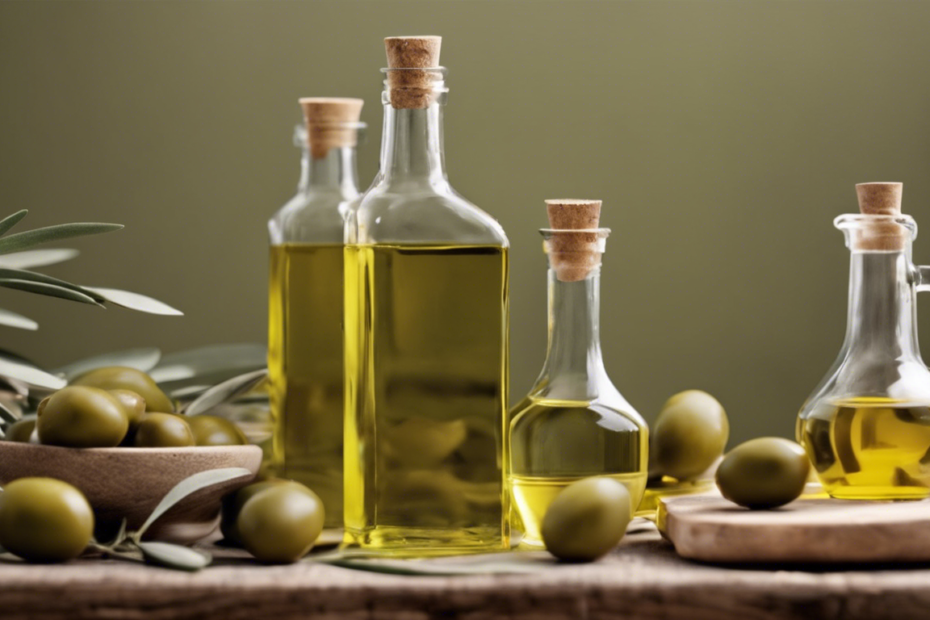Olive oil is often celebrated as one of the healthiest fats in our diets, but if you’ve ever wondered just how much fat is really in it, you’re not alone!
In this article, we’ll dive into the composition of olive oil, explore its numerous health benefits, and offer some handy tips on selecting and using this versatile oil to maximize its positive effects on your health.
So whether you’re a seasoned chef or just curious about incorporating olive oil into your meals, let’s discover the truth together!
Key Takeaways
- Olive oil is primarily composed of healthy monounsaturated fats, contributing to its nutritional value.
- Moderation is key; understanding fat content helps in incorporating olive oil into a balanced diet.
- Using high-quality olive oil maximizes its health benefits and improves flavor in meals.
- Incorporating olive oil can reduce the risk of heart disease and support overall health.
- Proper storage and selection of olive oil enhance its longevity and health properties.
The Composition of Olive Oil: Understanding Fat Content
When it comes to the composition of olive oil, one of the most crucial aspects to understand is its fat content, which is primarily made up of healthy monounsaturated fats.
On average, olive oil contains about 14 grams of fat per tablespoon, with a whopping 10 grams coming from heart-healthy monounsaturated fats.
This is why incorporating olive oil into your diet is considered a smart choice; not only does it enhance the flavor of your meals, but it also provides numerous health benefits such as reducing inflammation and lowering the risk of heart disease.
To truly maximize the health benefits of olive oil, it’s essential to select high-quality extra virgin olive oil, which contains more antioxidants and beneficial compounds compared to lower grades.
And don’t worry, using olive oil is super easy!
Whether you drizzle it on salads, use it for sautéing veggies, or even bake with it, just remember to store it away from light and heat to keep its goodness intact.
Health Benefits of Olive Oil: Why It’s a Smart Choice for Your Diet
When it comes to the composition of olive oil, it’s fascinating to dive into its fat content and the myriad benefits it brings to your diet.
So, how much fat is in olive oil?
Well, you’ll find that it’s primarily made up of healthy monounsaturated fats, which can actually help lower bad cholesterol levels and promote heart health.
A typical serving of olive oil contains about 14 grams of fat, but don’t let that number scare you away—it’s the type of fat that counts!
This liquid gold is also packed with antioxidants and anti-inflammatory properties, which means it does wonders not just for your taste buds, but for your overall well-being too.
Plus, it’s incredibly versatile; whether you’re drizzling it over salads or using it to sauté veggies, incorporating olive oil into your meals is a delicious way to boost your health.
Just remember to choose extra virgin for the highest quality and flavor, and enjoy all the health benefits it has to offer!
‘Let food be thy medicine and medicine be thy food.’ – Hippocrates
Selecting and Using Olive Oil: Tips for Maximizing Health Benefits
When it comes to selecting and using olive oil, understanding the fat content is crucial for maximizing its health benefits.
Olive oil is packed with monounsaturated fats, which are known to promote heart health while lowering bad cholesterol levels.
The key is to know that while olive oil is a great choice, it still contains about 14 grams of fat per tablespoon, making moderation essential in your diet.
So, if you’re drizzling it over salads or using it to sauté veggies, try to limit it to one or two tablespoons to reap the benefits without overdoing it on calories.
Opt for extra virgin olive oil whenever possible, as it has a higher content of beneficial antioxidants and a richer flavor.
Remember, the quality of the oil you choose matters too, so look for jars that are dark to protect the oil from light and check for a harvest date to ensure freshness.
With just a few simple tips on how much fat in olive oil to incorporate into your meals, you can enjoy its delicious taste while also capitalizing on its numerous health advantages!
Frequently Asked Questions
How much fat is in olive oil?
Olive oil is predominantly made up of fat, with about 100% of its content being fat.
However, it consists mainly of healthy monounsaturated fats, making it a heart-healthy option in your diet.
What are the health benefits of olive oil?
Olive oil is rich in antioxidants, such as vitamin E, and anti-inflammatory properties.
It can help lower cholesterol levels, reduce the risk of heart disease, and even support brain health.
Plus, it’s delicious!
Can I substitute other oils with olive oil?
Absolutely!
Olive oil can be used in place of many other oils in cooking and baking.
It’s especially great for sautéing vegetables, salad dressings, and even drizzling over finished dishes for added flavor.
How should I store olive oil to maintain its quality?
To keep olive oil fresh, store it in a cool, dark place away from heat and light.
A tightly sealed dark glass bottle is ideal, and it should be consumed within a few months to ensure the best flavor and health benefits.
Is all olive oil created equal?
No, not all olive oils are the same.
Extra virgin olive oil is the highest quality, made from fresh olives and free from processing chemicals.
Always check labels and opt for oils that are cold-pressed and organic when possible.
